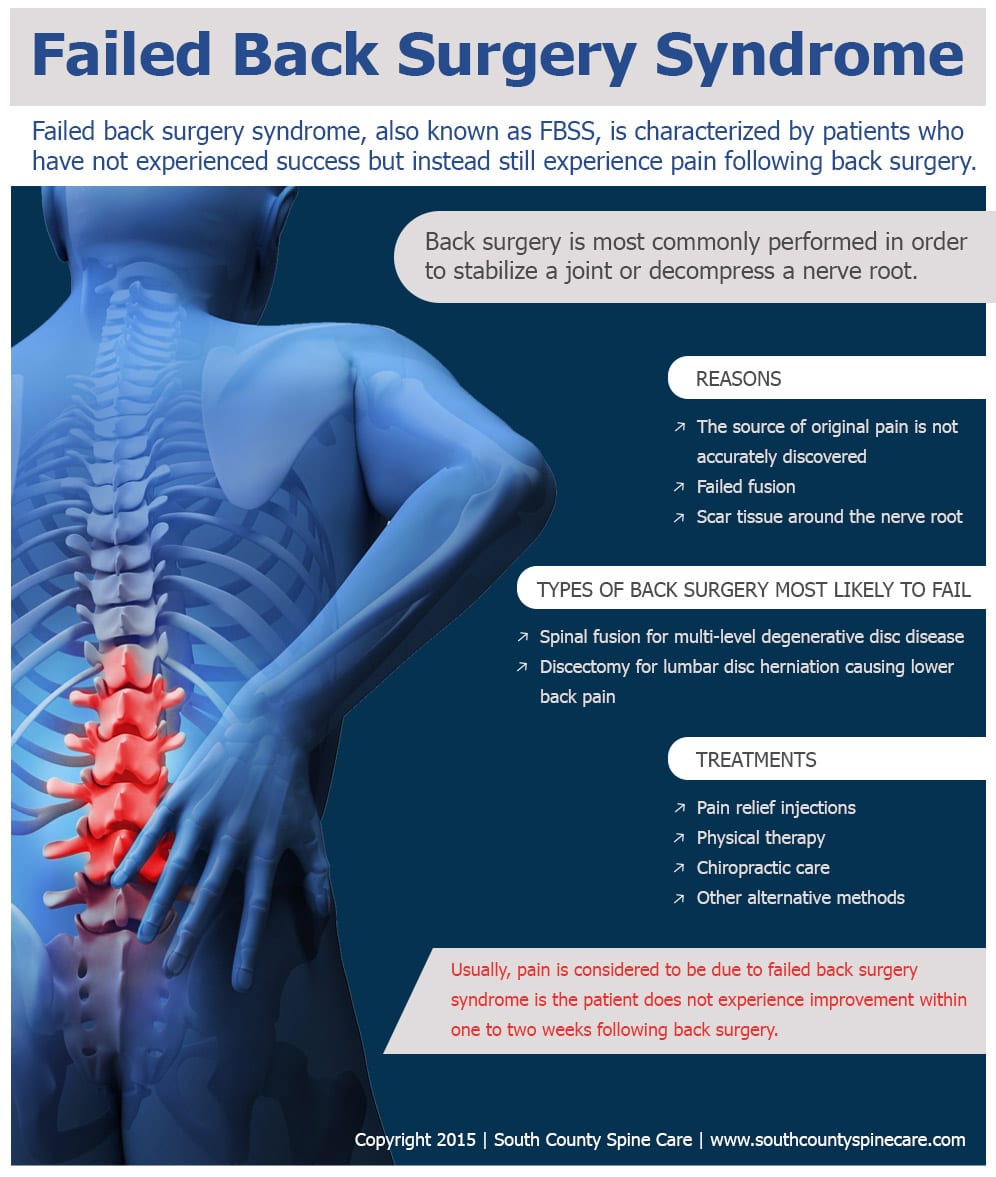Failed Back Surgery Syndrome (FBSS)

Failed Back Surgery Syndrome (FBSS): Overview, Causes, and Symptoms
What is Failed Back Surgery Syndrome?
Failed Back Surgery Syndrome (FBSS) refers to a condition where patients experience persistent or recurrent pain following one or more back or spine surgeries. Despite surgical intervention aimed at relieving pain or correcting spinal problems, symptoms continue or worsen, impacting quality of life.
Causes of FBSS
FBSS can arise due to multiple factors, including:
- Recurrent or residual disc herniation at or near the original surgical site.
- Persistent nerve root compression due to scar tissue (fibrosis) or inflammation.
- Altered joint mobility or spinal instability following surgery.
- Adjacent segment disease, where neighboring spinal levels degenerate or become symptomatic.
- Infections or complications post-surgery.
- Pre-existing systemic conditions like diabetes, autoimmune disorders, or vascular disease that complicate recovery.
Symptoms of FBSS
Symptoms vary widely but often include:
- Persistent, dull, aching pain in the lower back and/or legs, which may be similar or different from pre-surgery pain.
- Neurological symptoms such as numbness, tingling, weakness, or sharp stabbing pains radiating along nerves.
- Limited mobility, muscle spasms, and difficulty performing daily activities.
- Psychological distress including anxiety, depression, and sleep disturbances related to chronic pain.
- Some patients may also develop a dependence on pain medications due to ongoing discomfort.
Diagnosis and Management
Diagnosis involves a comprehensive clinical evaluation, imaging studies (MRI, CT scan), and sometimes diagnostic nerve blocks to identify pain sources. Treatment of FBSS often requires a multidisciplinary approach, including physical therapy, pain management strategies, medications, and in some cases, revision surgery or advanced interventions such as spinal cord stimulation.
Key Points
- FBSS is persistent or recurrent pain after spinal surgery despite intervention.
- Caused by factors like recurrent disc herniation, nerve compression, scar tissue, or spinal instability.
- Symptoms include chronic back and leg pain, neurological deficits, and reduced function.
- Psychological symptoms often coexist and worsen the patient’s condition.
- Effective diagnosis and multidisciplinary management are crucial for improvement.
Consult with Our Team of Experts Now!
If you experience ongoing pain or neurological symptoms following back surgery, consult our spine specialists for a thorough assessment and personalized treatment plan using Cellular Therapy and Stem Cells to improve your quality of life.
References:
Clancy C, Quinn A, Wilson F. The aetiologies of Failed Back Surgery Syndrome: A systematic review. J Back Musculoskelet Rehabil. 2017 May 5;30(3):395-402. doi:10.3233/BMR-150318. Available at: https://journals.sagepub.com/doi/abs/10.3233/BMR-150318















